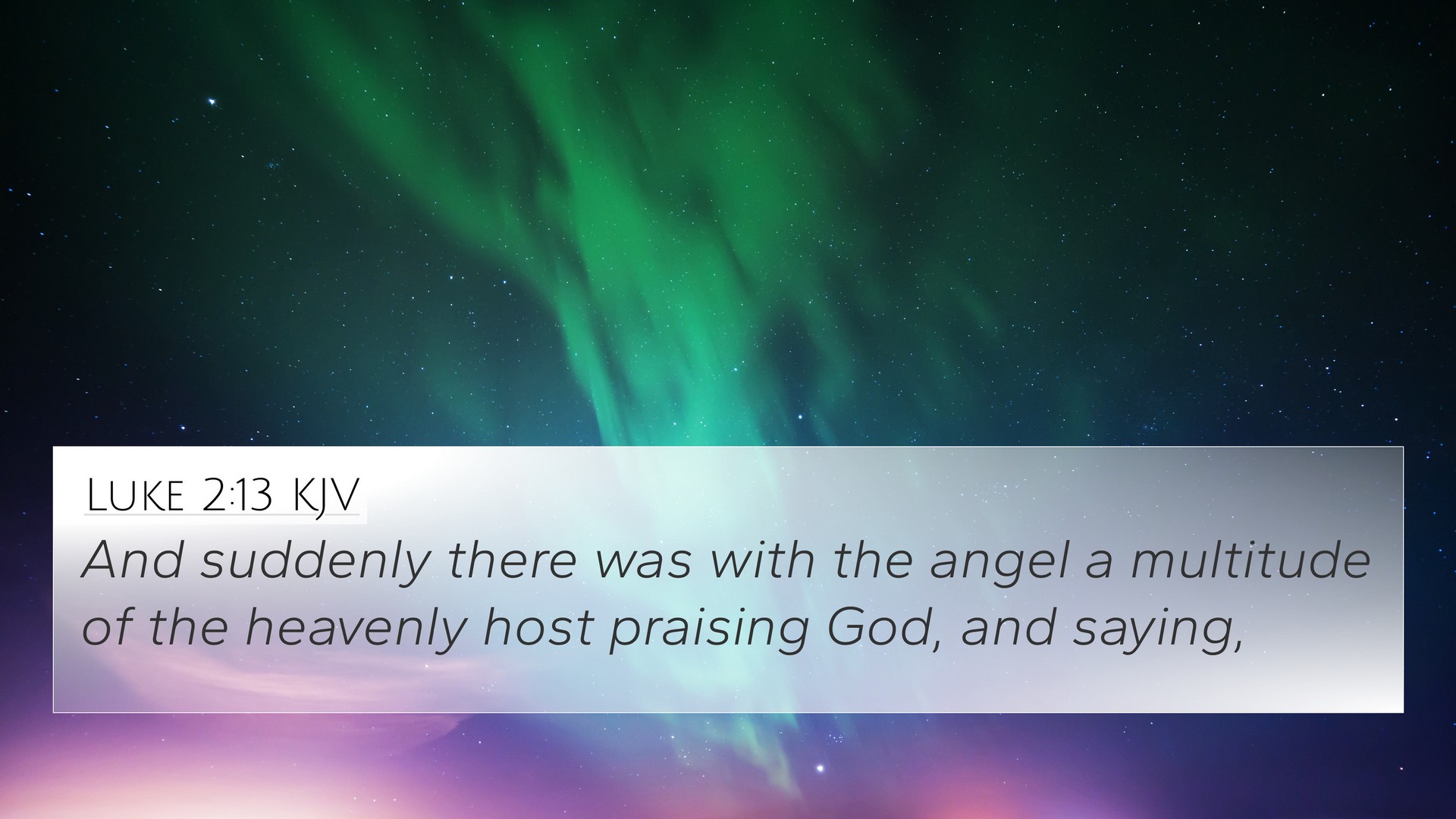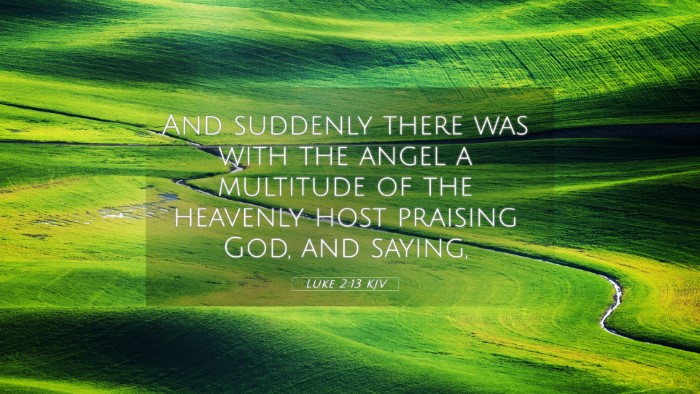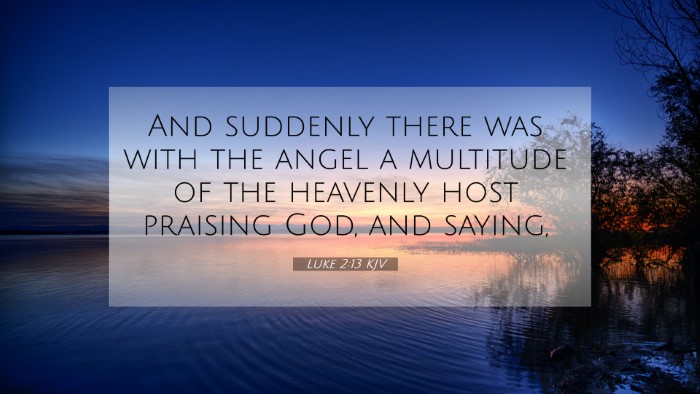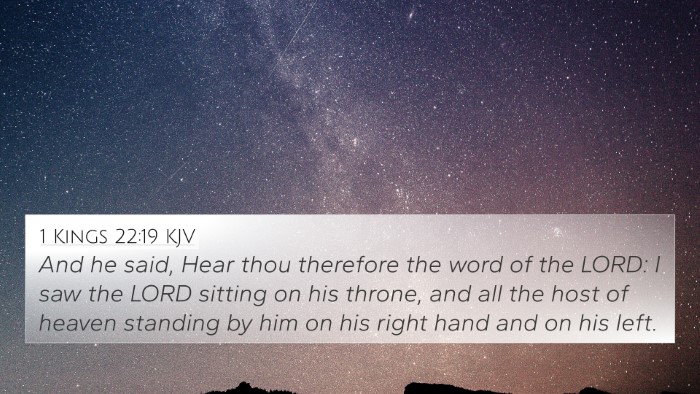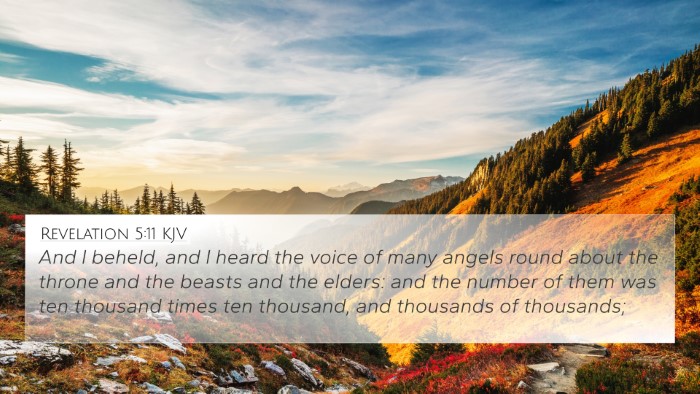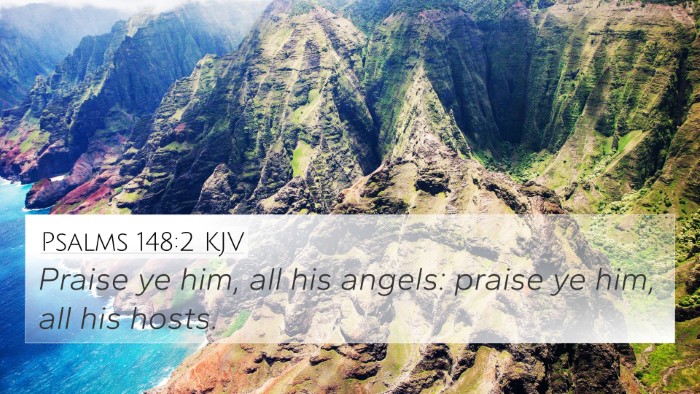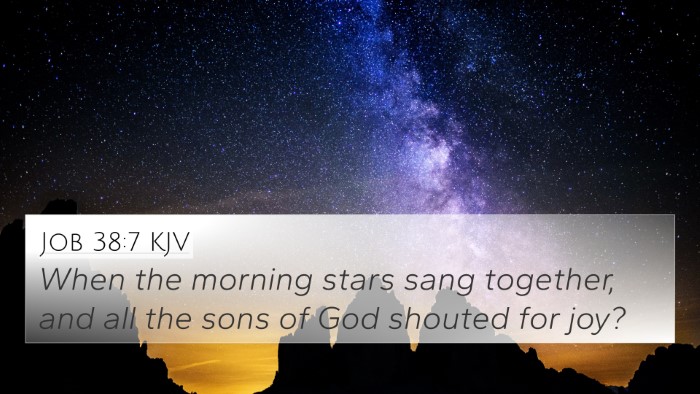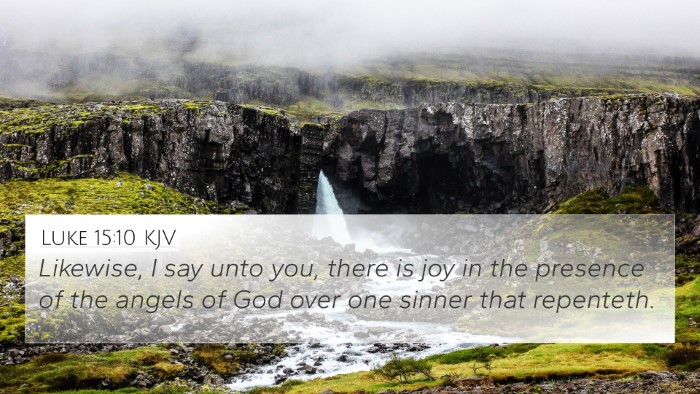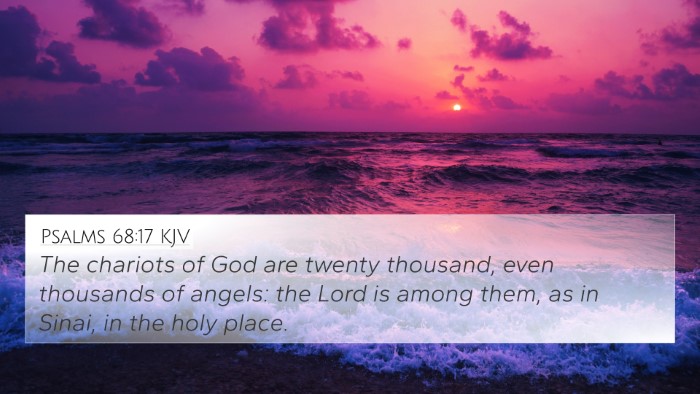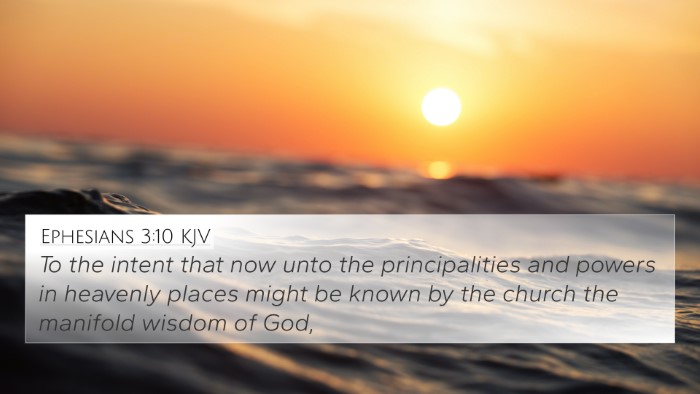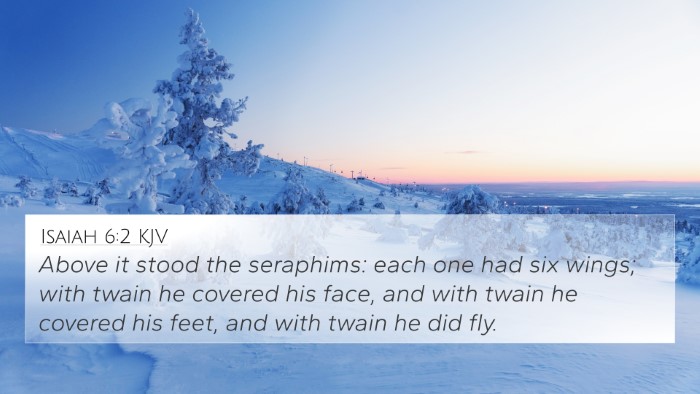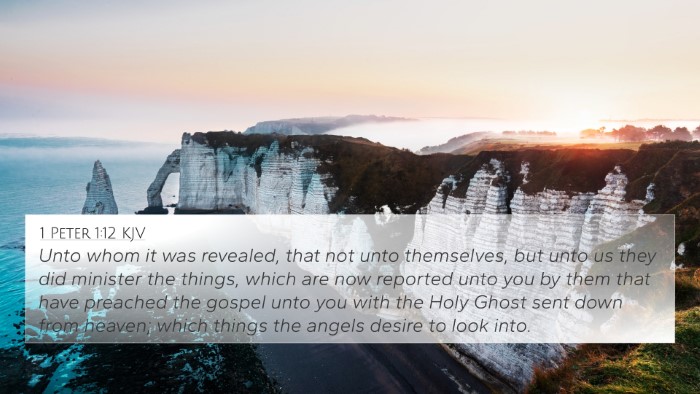Understanding Luke 2:13
Verse: “And suddenly there was with the angel a multitude of the heavenly host praising God, and saying,” (Luke 2:13, KJV)
Summary of Meaning
The verse Luke 2:13 closely follows the announcement of Jesus' birth by an angel to shepherds in the fields. This moment not only signifies the arrival of the Messiah but also serves as a pivotal moment in the divine narrative of salvation. The passage describes a scene filled with heavenly joy and affirmation of God's glory, as a multitude of angels joins in praising God.
Commentary Insights
Matthew Henry's Commentary
Henry emphasizes the divine purpose behind this angelic revelation. The sudden appearance of the multitude reinforces the significance of Jesus' birth and serves to highlight the transition from silence to the proclamation of joy. The multitude of the heavenly host signifies both the glory of God and the universal importance of the event. This moment interprets the joy of heaven corresponding to the grace being poured out on earth.
Albert Barnes' Notes on the Bible
Barnes notes that the "heavenly host" represents a great company of angels, showcasing God's intention to reveal His plan for humanity. The multitude magnifies the significance of the birth of Christ, celebrating it as a moment of spiritual and temporal importance. The angels proclaim peace, emphasizing the reconciliation between God and mankind through this event, which is pivotal for understanding the broader themes of peace and worship in the New Testament.
Adam Clarke's Commentary
Clarke elaborates on the term “host,” indicating it refers to a vast array of beings, potentially signifying not just quantity but the significance of divine approval. He also highlights that the angels' praise is an example for believers, indicating the need for constant worship and acknowledgment of God's divine plan. The message "peace on earth" offers hope for humanity, aligning with the thematic connections present throughout scripture.
Cross-References to Luke 2:13
- Isaiah 9:6: For unto us a child is born, marking the prophetic announcement of Christ’s birth.
- Luke 2:14: The continuation of the angelic declaration, “Glory to God in the highest, and on earth peace, goodwill toward men.”
- Revelation 5:11-12: A glimpse into the heavenly host praising God in eternity, drawing parallels to earthly praise.
- Psalms 148:1-2: Calling upon the heavens and the angels to praise the Lord, similar to the representation in Luke.
- Matthew 1:23: A reference to Emmanuel (God with us), underscoring the significance of the incarnation.
- Hebrews 1:6: Angels worship the Son, reinforcing their role in the divine narrative of Christ's birth.
- Luke 1:19: The angel's role in God’s plans, establishing the authority of angelic messages in biblical contexts.
- Matthew 2:10: The joy of the Magi upon finding Christ, resonating with the heavenly joy at His birth.
- Isaiah 52:7: Proclaiming peace and salvation, correlating with the themes expressed in the announcement of Jesus’ birth.
- Philippians 2:10-11: Every knee shall bow and tongue confess, indicating the universal acknowledgment of Christ’s glory.
Thematic Connections
This verse and its surrounding context emphasize several themes that interlace throughout the Bible:
- Divine Revelation: The angelic messages remind believers of God's active presence in human history.
- Joy and Worship: The response of the angels invites a lifestyle of worship among believers, highlighting the transformation brought by Christ.
- Peace: Central to the message is the declaration of peace on earth, a theme that resonates through both Old and New Testaments.
- Salvation: The birth of Jesus initiates the fulfillment of salvation history, echoing through various prophecies and declarations.
- Universal Message: The multitude of angels signifies that Christ’s coming is for all, breaking down barriers between nations and peoples.
Conclusion
Luke 2:13 encapsulates a profound moment in biblical history, signifying the intersection of divine glory and human experience. Cross-referencing this verse with related scriptures enhances our understanding of its significance, revealing a web of divine purpose that transcends both Testaments. Through comparative Bible verse analysis, we observe that the themes of worship, peace, and divine proclamation are woven throughout scripture, inviting deeper reflection and understanding among believers.
Tools for Bible Cross-Referencing
- Bible Concordance
- Bible Cross-Reference Guide
- Cross-Reference Bible Study Methods
- Bible Chain References
- Comprehensive Bible Cross-Reference Materials
